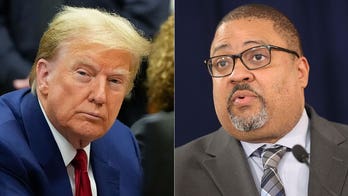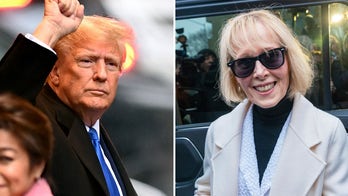All of this talk of "Kumbaya seating" -- aka: bipartisan seating at the president's State of the Union address Tuesday night -- has some hoping a mere symbolic gesture could be a catalyst for change in Washington, better relationships among legislators with wildly disparate views, all of it having a trickle down affect that could grease the machine of government into bipartisan action. But could all of this be more of a distraction when put into practice?
All across the Capitol, odd couple pairings are popping up: Sens. Chuck Schumer, D-NY, with Tom Coburn, R-Okla.; John McCain, R-Ariz., with Tom Udall, D-NM (Udall has deep family ties to Ariz. - they are family friends); Bob Casey, D-Pa., with Pat Toomey, R-Pa.; Dick Durbin, D-Ill., with Mark Kirk, D-Ill.; Mary Landrieu, D-La., with Olympia Snowe, R-Maine; Kirsten Gillibrand, D-Ny., with John Thune, R-SD; and Ron Wyden, D-Oreg., with Chuck Grassley, R-Iowa. House members are also getting into the act. Majority Whip Kevin McCarthy, R-Calif., plans to sit next to his Democratic counterpart, Steny Hoyer of Maryland.
But while some in Washington are hoping the political musical chairs has a lasting effect on comity and thereby on policy, others think the night might be pretty awkward with some members popping up with applause while others remain seated, like the childhood game 'Whack-a-Mole', and could detract from the very reason members have gathered.
"That's what people are going to focus on, not on the speech. It's distracting for President Obama. If I were them, I wouldn't want it," former George W. Bush spokeswoman Dana Perino told Fox.
"I think the president would say that anytime...there's more collegiality, less acrimony and less partisanship, either during the speech or during the debates and what have you on these issues, that that's a good thing for the process," White House Press Secretary Robert Gibbs told reporters on Monday, seemingly unphased by the potential distraction.
Already the bipartisan event heard round the world has led to some rather awkward moments, though, somewhat like a high school dance gone bad, with one former cheerleader-prom queen possibly even turning down a date on live TV. Senate Budget Committee Chairman Kent Conrad, D-ND, boldly asked his colleague, former Texas high school prom queen Sen. Kay Bailey Hutchison, a Republican, for a date to the address while the two were guests on ABC's "This Week," but nary a "yes" was to be heard from the Texas pol.
Still, Sen. McCain said Sunday he's hoping for less of the partisan "cheerleading," something the bipartisan seating arrangement could avert, though the senator seemed to hold out little hope. "I frankly think the cheerleading side of it has detracted from the ability of any president, Republican or Democrat, to speak continuously to the American people without so many interruptions," the senator said, adding, "I think there will be plenty of interruptions. And it doesn't matter where you sit, but it might be nice to have a few less."
It's an idea born out of the shooting of Arizona Congresswoman Gabrielle Giffords and a national focus on more respectful political discourse, conceived by Sen. Mark Udall, D-Colo., who, along with his GOP partner in the effort, Sen. Lisa Murkowski of Alaska, have managed to coral more than 60 members into signing onto their cause. And though the call for more civil rhetoric barely lasted after that shooting, these two members hope this grand gesture can make a difference.
The two, together with 57 of their colleagues, sent a letter to the bipartisan congressional leadership late last week calling it "a small, but important new tradition" they hope to establish, adding, "Perhaps, by sitting with each other for one night, we will begin to rekindle that common spark that brought us here from 50 different states and widely diverging backgrounds to serve the public good."
"I think it's a good thing. I do believe, though, that this is symbolic," House Assistant Minority Leader Jim Clyburn, D-SC, said on NBC's "Meet the Press" Sunday. The leader said he thought he would sit next to a Republican, but he added, "What we need to do is be substantive about it. And the way you do that is let's propose some bipartisan efforts with health care, with job creation, just as we did with voting rights and civil rights. These things were done in a bipartisan way. And that's substance."
It's a sentiment echoed by Senate GOP Leader Mitch McConnell, R-Ky., who told Fox News Sunday's Chris Wallace, "I'm going to sit where I usually sit (the GOP side of the aisle)...More important than the appearance of sitting together is what we do together. And the American people are more interested in actual accomplishments on a bipartisan basis here in the next six to nine months than they are with the seating arrangement at the State of the Union."




